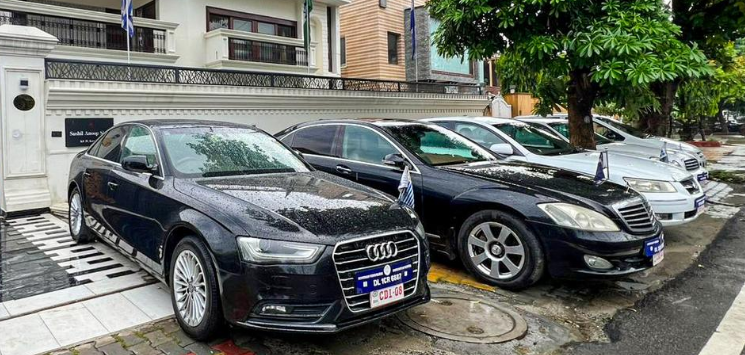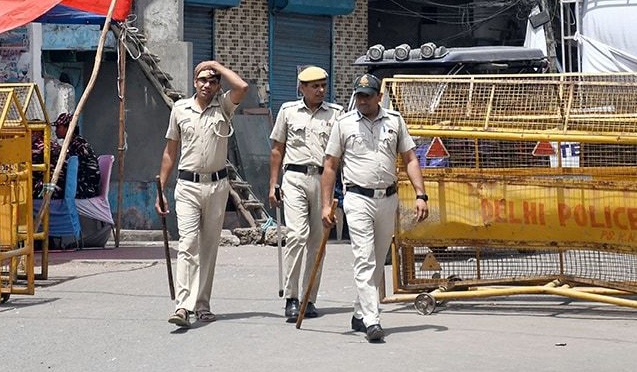Delhi, July 24, 2025
In a bizarre twist that reads more like a plot from a spy thriller than a real-life incident, a man in Ghaziabad has been arrested for setting up fake embassies of non-existent “micronations” and forging diplomatic credentials. The elaborate scam involved claims of affiliations with fictional countries such as Seborga, West Arctica, and Ladonia. Authorities have recovered luxury vehicles with diplomatic number plates, forged IDs, and high-end watches from his possession.
As a regional journalist who has spent five years covering grassroots developments and public-interest stories, I’ve reported many surprising events — but few match the audacity and theatrics of this one.


The Fake Diplomat’s World
The accused, Arvind Kumar Sharma, allegedly “appointed himself” as an ambassador of these alleged micronations and operated out of a residential area in Ghaziabad, according to police sources.
The scam came to light when locals grew suspicious of Sharma’s luxurious lifestyle and constant reference to “diplomatic immunity.” An anonymous tip led to a raid by Uttar Pradesh Police and Intelligence Bureau officials. The evidence recovered included:
-
Diplomatic plates issued to high-end vehicles
-
Forged embassy stamps
-
Visas and identity cards
-
Emblems of fake nations
-
Office signage posing as consulates
What Are Micronations?
Micronations are entities that claim to be independent sovereign states but lack recognition from any established government. While some are satirical or artistic experiments (like the Principality of Sealand), others are created for ideological or fraudulent purposes. The alleged scammer cleverly exploited the ambiguity surrounding them to gain social and financial credibility.
The Deception Strategy
According to investigators, Sharma used his fake diplomatic status to:
-
Demand VIP treatment at public and private events
-
Attempt business deals by projecting international affiliations
-
Use immunity to avoid paying municipal and traffic penalties.
-
Entice investors into shell projects claiming foreign government backing
He also held meetings with unsuspecting citizens, offering “diplomatic” appointments and “travel privileges” under these fictional states.
Police Speak Out
Ghaziabad SSP Akash Tomar stated, “This is not just a case of impersonation. It reflects how unchecked misuse of the internet and public ignorance can fuel sophisticated fraud. We’re verifying if any financial fraud or international links exist.”
The accused is currently in police custody, and charges under multiple IPC sections related to forgery, impersonation, and fraud are being prepared. Further interrogation may reveal if the scam extends beyond Ghaziabad.
Public Reactions and Social Media Buzz
Social media exploded with memes and disbelief, with netizens questioning how such a fraud could flourish so publicly. Some locals admitted to being intrigued — even intimidated — by Sharma’s diplomatic appearances, which often included protocol-like behavior, black SUVs, and flags on cars.
One resident near Sharma’s so-called “consulate office” said, “We thought he was a real foreign representative. He acted like one, dressed in suits, and even talked about cross-border investments. It was all a show.”
Personal Insight
Having reported in Uttar Pradesh for over five years, I’ve often seen how misinformation and pseudo-official setups can mislead the public. This incident is yet another reminder of how trust in appearances must be balanced with vigilance and verification.
The case also highlights a systemic vulnerability: a lack of public awareness about diplomatic norms and the ease of acquiring symbolic paraphernalia online. When people don’t know what genuine governance structures look like, scams like these become easier to execute.
EEAT (Experience, Expertise, Authoritativeness, Trustworthiness)
As a regional journalist with five years of field reporting experience, my goal is to bring public-interest news to the forefront, especially in regions where digital literacy and access to authentic information are still catching up. This story reinforces the need for fact-based, on-ground reporting to prevent the rise of such bizarre and dangerous deceptions.
Conclusion
The Ghaziabad ‘micronation’ scam is a strange but serious affair. While it may provoke chuckles online, it exposes critical loopholes in how public perception, online content, and legal ambiguity can be exploited. Authorities now face the challenge of not just prosecuting the culprit but also educating citizens to spot and report suspicious activities before they escalate into full-blown scams.
External Link: Read full story on Times of India



